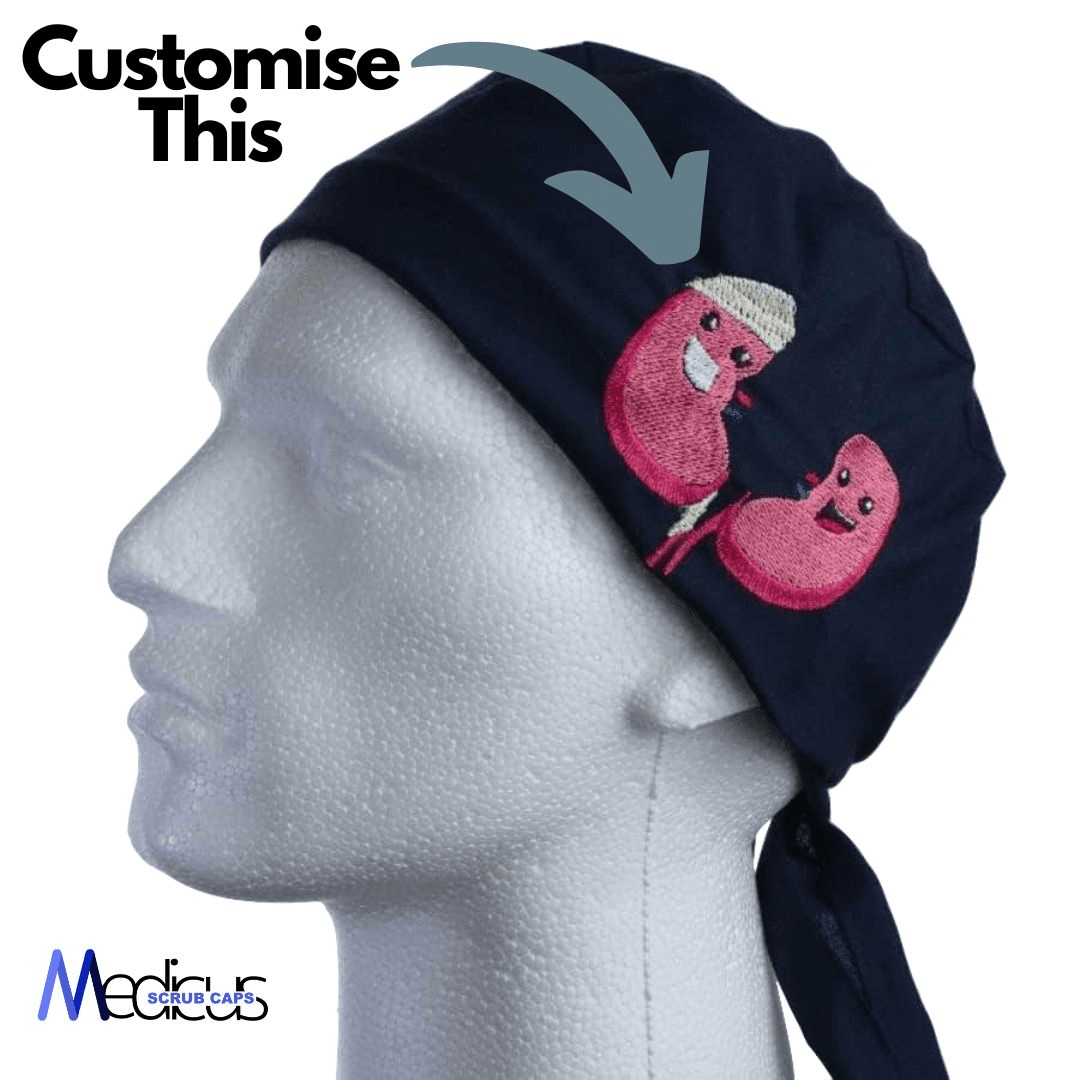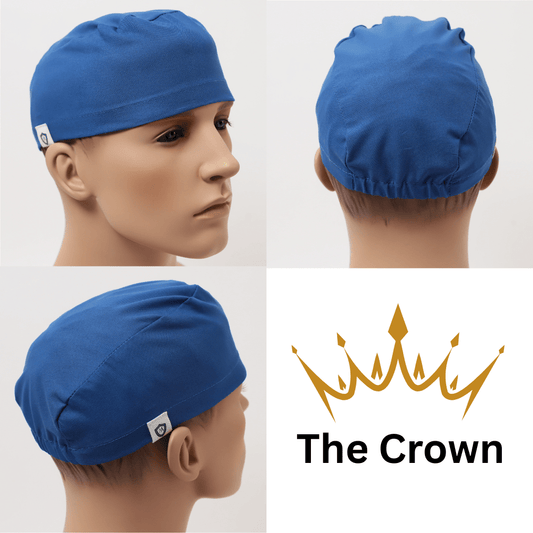
Surgical Caps for Small Heads: Complete Sizing Guide & Perfect Fit Solutions
Surgical Caps for Small Heads: Complete Sizing Guide & Perfect Fit Solutions
Finding the perfect surgical cap for small heads can be challenging, but you're not alone. Many healthcare professionals struggle with caps that are too loose, slip during procedures, or simply don't provide the secure, comfortable fit needed for long shifts. This comprehensive guide will help you find the ideal surgical cap that fits perfectly and stays in place all day.
Quick Sizing Reference for Small Heads
- Extra Small (XS): Head circumference 20-21 inches (51-53cm)
- Small (S): Head circumference 21-22 inches (53-56cm)
- Petite Adult: Head circumference 20.5-21.5 inches (52-55cm)
- Youth/Teen: Head circumference 19-21 inches (48-53cm)
How to Measure Your Head for the Perfect Fit
Step-by-Step Measuring Guide
- Get a flexible measuring tape: Use a soft fabric measuring tape for accuracy
- Position the tape correctly: Place it around your head about 1 inch above your eyebrows
- Measure around the widest part: Go around the back of your head at the widest point
- Keep it snug but comfortable: The tape should be firm but not tight
- Record your measurement: Note both inches and centimeters for reference
Common Measurement Mistakes to Avoid
- Measuring too high: Don't measure at the hairline - go lower
- Too loose measurement: The tape should be snug against your head
- Not accounting for hair: Measure with your hair in its typical work style
- Single measurement: Measure twice to ensure accuracy
Problems with Ill-Fitting Surgical Caps
When surgical caps don't fit properly, it can cause several issues that affect both comfort and performance:
Safety and Hygiene Concerns
- Slipping during procedures: Loose caps can shift and compromise sterile fields
- Hair exposure: Poor fit may allow hair to escape the cap
- Frequent adjustments: Constantly touching your cap increases contamination risk
- Distraction during critical moments: Worrying about your cap instead of focusing on patients
Comfort Issues
- Headaches: Caps that are too tight can cause tension headaches
- Pressure points: Poor fit creates uncomfortable pressure on specific areas
- Slipping and sliding: Loose caps require constant readjustment
- Professional appearance: Ill-fitting caps look unprofessional
Best Surgical Cap Styles for Small Heads
| Cap Style | Best For Small Heads | Key Benefits | Considerations |
|---|---|---|---|
| Tie-Back Caps | ⭐⭐⭐⭐⭐ Excellent | Fully adjustable, custom fit | Takes longer to put on |
| Elastic Back | ⭐⭐⭐ Good | Quick to wear, stays secure | Limited size adjustment |
| Bouffant Style | ⭐⭐ Fair | Accommodates all hair types | May be too loose for very small heads |
| Ponytail Caps | ⭐⭐⭐⭐ Very Good | Secure fit, accommodates long hair | Specific to long hair needs |
Product Recommendations for Small Heads
Top Picks for Extra Small and Small Head Sizes
Our Most Popular Small Head Solutions
- Adjustable Tie-Back Caps: Perfect for heads 20-22 inches - fully customizable fit
- Small Size Elastic Caps: Pre-sized for 21-22 inch heads - quick and convenient
- Youth/Petite Adult Caps: Specifically designed for smaller head circumferences
- Custom Sizing Available: We can create caps for any head size upon request
Features to Look for in Small Head Surgical Caps
- Adjustable ties: Allow for perfect customization
- Smaller elastic circumference: Pre-sized for smaller heads
- Lightweight materials: Won't add bulk or weight
- Secure closure systems: Prevent slipping during use
- Comfortable fabrics: Soft materials that don't irritate
Customer Success Stories
"I'm a petite surgeon and struggled for years with caps that were too big. The adjustable tie-back caps from Medicus have been a game-changer. They stay secure throughout 8-hour surgeries and look professional."
- Dr. Lisa Chen, Pediatric Surgeon
"As a nursing student with a small head, I was constantly adjusting my cap during clinicals. The small-size elastic caps fit perfectly and give me confidence during patient care."
- Maria Rodriguez, Nursing Student
Sizing Tips for Different Hair Types
Short Hair
- Measure with hair styled normally: Don't compress hair when measuring
- Consider cap depth: Shorter hair needs less internal space
- Focus on circumference fit: The main concern is around-the-head fit
Long Hair
- Measure with hair up: Style hair as you would for work
- Consider ponytail caps: Designed specifically for long hair accommodation
- Account for hair volume: Thick hair may require slightly larger size
Curly or Textured Hair
- Measure at maximum volume: When hair is at its fullest
- Look for stretch fabrics: Materials that accommodate hair movement
- Consider satin-lined options: Protect hair texture and reduce friction
Care Instructions for Long-Lasting Fit
Proper care ensures your surgical caps for small heads maintain their fit and shape:
Washing Guidelines
- Cold water wash: Prevents shrinkage and maintains elasticity
- Gentle cycle: Protects fabric integrity and elastic components
- Mild detergent: Harsh chemicals can break down elastic fibers
- Air dry when possible: Heat can cause shrinkage and elastic degradation
Storage Tips
- Lay flat or hang: Prevents stretching and deformation
- Avoid folding elastic areas: Can create permanent creases
- Rotate between multiple caps: Extends the life of each cap
Frequently Asked Questions
Q: What if I'm between sizes?
A: For small heads, we recommend going with the smaller size if you're between measurements. Adjustable tie-back styles offer the most flexibility for in-between sizes.
Q: Can I alter a regular-sized cap to fit my small head?
A: While possible, we don't recommend altering surgical caps as it can compromise their integrity and sterile properties. Purpose-made small caps are safer and more effective.
Q: Do you offer custom sizing for very small heads?
A: Yes! We can create custom-sized caps for any head circumference. Contact us with your measurements for a personalized solution.
Q: How often should I replace my surgical caps?
A: With daily use, replace caps every 6-12 months or when you notice the elastic losing its stretch or the fabric showing wear.
Q: Are there specific styles recommended for pediatric healthcare workers?
A: Pediatric settings often allow for more colorful and fun designs. Our small-sized caps come in child-friendly patterns that are perfect for pediatric environments.
Why Proper Fit Matters in Healthcare
A properly fitting surgical cap is more than just comfort—it's about:
- Patient safety: Secure caps prevent contamination
- Professional confidence: Comfortable fit lets you focus on patient care
- Infection control: Proper coverage prevents hair and skin particle shedding
- Team cohesion: Professional appearance builds patient trust
- Personal comfort: No distractions during critical procedures
Find Your Perfect Fit Today
Don't let ill-fitting caps compromise your comfort or performance. Our surgical caps for small heads are designed specifically for healthcare professionals who need a secure, comfortable fit.
Related Articles for Healthcare Professionals
- Choosing Your Scrub Cap Style
- How To Choose The Perfect Scrub Cap For You
- Theatre Scrub Cap Sizing
- Can I Wear A Scrub Cap With Long Hair?
About Medicus Caps: We understand that one size doesn't fit all in healthcare. That's why we offer surgical caps in a full range of sizes, including specialized options for small heads. Every cap is designed with input from healthcare professionals who know what really matters for comfort, safety, and performance.





